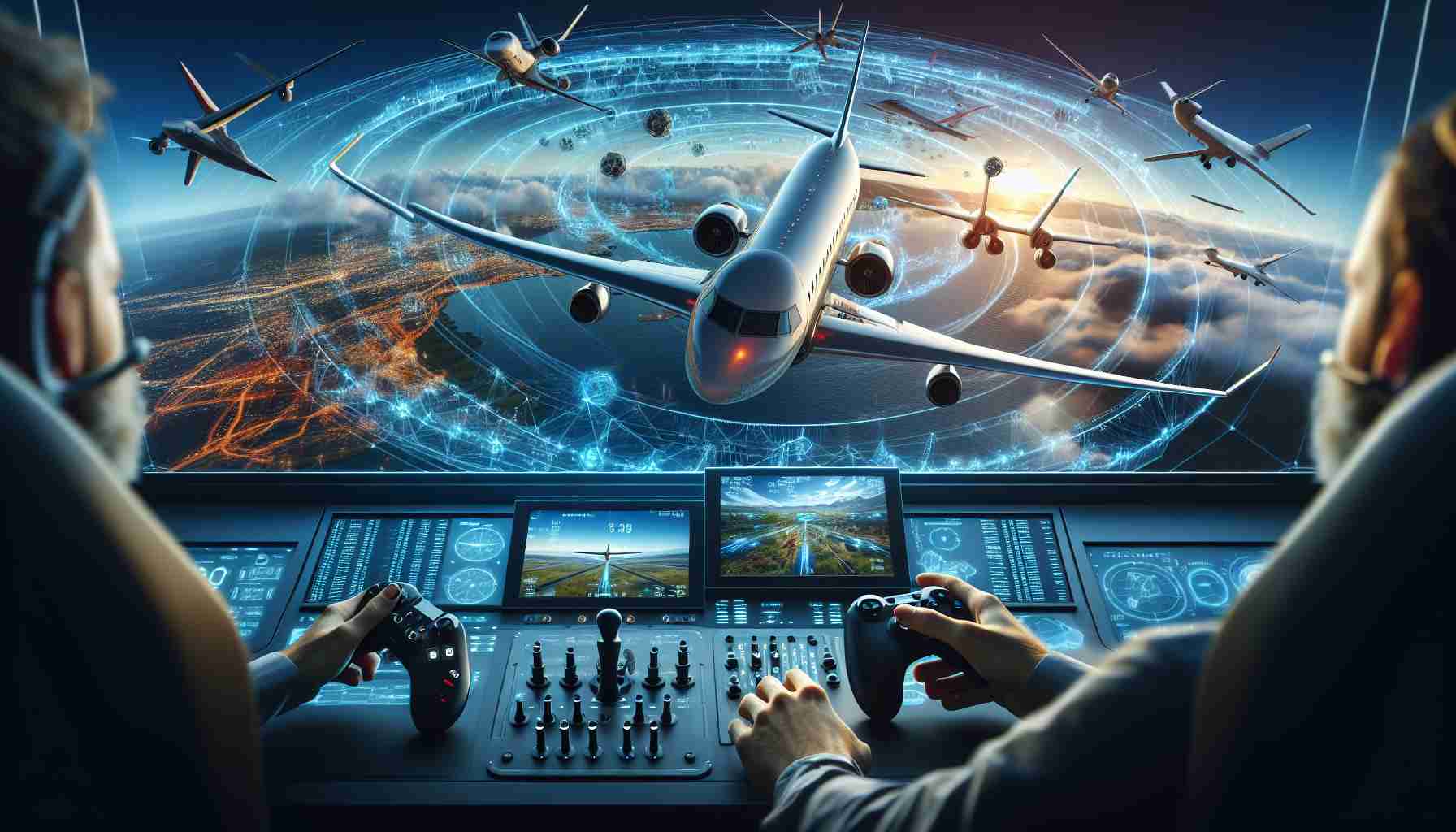The gaming world is abuzz with the upcoming release of Microsoft Flight Simulator 2024, promising to take virtual flying to unprecedented heights. This next installment in the iconic series isn’t just a game—it’s an expedition into the future of simulation technology.
Harnessing Cutting-Edge Technology
One of the key highlights of MSFS 2024 is its integration of advanced technologies, enabling players to experience flight with hyper-realistic environments and dynamic weather systems. Enhanced by Artificial Intelligence (AI), the game will dynamically adjust scenarios, ensuring that no two flights are ever the same.
Embracing the Future of Simulation
Microsoft has hinted at incorporating Next-Gen Virtual Reality (VR) compatibility, providing serious aviation enthusiasts with an opportunity to step into the virtual cockpit and evoke sensations akin to real-world flying. The game also promises to leverage cloud computing to offer a continuously updated and evolving world map, reflecting real-time changes.
A Leap Towards Educational Gaming
With its immersive detail, MSFS 2024 is set to become more than just entertainment; it is anticipated to be a valuable tool for educational institutions. It will offer players a chance to learn actual flight principles, explore geography, and gain insights into weather patterns.
As the release date draws closer, the gaming community eagerly anticipates how Microsoft Flight Simulator 2024 will redefine simulation experiences. With these exciting advancements, the game is not just a sequel but a pioneering leap into the future of virtual aviation.
Microsoft Flight Simulator 2024: Revolutionizing Virtual Aviation with Unmatched Realism
As the gaming world eagerly awaits the release of Microsoft Flight Simulator 2024, the anticipation is building around the game’s promise to revolutionize the norms of simulation technology. This release is not simply another iteration; it represents the cutting edge of virtual aviation, underpinned by technological innovations designed to deliver an experience that is as close to real-world flying as it gets.
Advanced Features and Innovations
One of the key advancements in MSFS 2024 is its use of Artificial Intelligence (AI) to create hyper-realistic environments and dynamic weather systems. This ensures a unique flying experience every time, as the scenarios adapt dynamically to various factors.
Microsoft is also pushing the envelope by incorporating next-gen Virtual Reality (VR) compatibility. This allows aviation enthusiasts to sit in a virtual cockpit, making the flying experience incredibly immersive. With the integration of cloud computing, players can expect a world map that is continuously updated and evolves in real-time, accurately reflecting changes in the world’s geographical and meteorological conditions.
Educational Value and Use Cases
Beyond just a gaming experience, MSFS 2024 is anticipated to be a significant educational resource. It aims to teach players real flight principles, making it a useful tool for learning in aviation-related educational programs. Players can explore global geography and understand complex weather patterns, which enhances both learning and gameplay.
Market Trends and Predictions
The release of Microsoft Flight Simulator 2024 is expected to set new trends in the gaming and simulation market. Its potential use in educational contexts broadens its appeal beyond just gamers, extending to academicians and hobbyists interested in flight and simulation technology.
Security and Compatibility Considerations
With its cloud-based features, security has been a point of focus for developers. The continuous updates from cloud computing propose challenges that Microsoft is addressing to ensure safe and reliable gameplay. Compatibility with current gaming hardware and next-gen VR devices ensures users have multiple avenues to experience the game at its full potential.
Sustainable Gaming Innovations
The game’s architecture also hints at a lean towards sustainability. By utilizing cloud computing, Microsoft Flight Simulator 2024 reduces the dependency on local hardware resources, potentially lowering energy consumption and extending the lifespan of consumer devices.
As we edge closer to the release of Microsoft Flight Simulator 2024, its blend of technological prowess and potential educational applications is set to redefine virtual aviation. Stay tuned for its release and see how the future of flying unfolds with Microsoft’s groundbreaking simulation technology. For more information, visit the Microsoft official website.


















